The Victorian Order of Nurses of Canada 1897
To the present NOVA West Island
Speaker: Gloria Timmins
When: Thursday, September 21, 2023, 19:30 to 21:00
where: Centennial Hall,
288 Beaconsfield Blvd, Beaconsfield, H9W 4A4
Lecture in English, followed by a bilingual question period
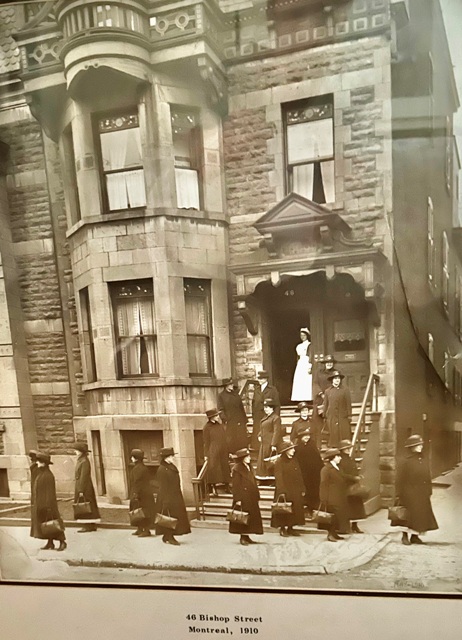 The Victorian Order of Nurses (VON) was founded in 1897 by Lady Aberdeen, consort to the then Governor General of Canada, Earl of Aberdeen (1893-1898). We will see how the VON played a part in Canada's history from the Klondike Gold Rush, the Halifax Explosion and two World Wars. In later years, we witnessed VON's decreased importance as a national institution, which gave birth to our own NOVA West Island.
The Victorian Order of Nurses (VON) was founded in 1897 by Lady Aberdeen, consort to the then Governor General of Canada, Earl of Aberdeen (1893-1898). We will see how the VON played a part in Canada's history from the Klondike Gold Rush, the Halifax Explosion and two World Wars. In later years, we witnessed VON's decreased importance as a national institution, which gave birth to our own NOVA West Island.
Our speaker, Gloria Timmons, is a graduate of The Jeffery Hale Hospital and Concordia University. She was a clinical nurse with VON Ste. Anne &West Island and NOVA West Island for 28 years. She retired in 2017 and presently is a proud volunteer at the Thrift shop for NOVA, Beaurepaire.
===========================================================
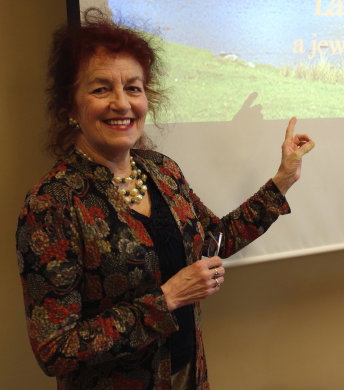 When: Thursday, April 20, 2023, 19h30 à 21h
When: Thursday, April 20, 2023, 19h30 à 21h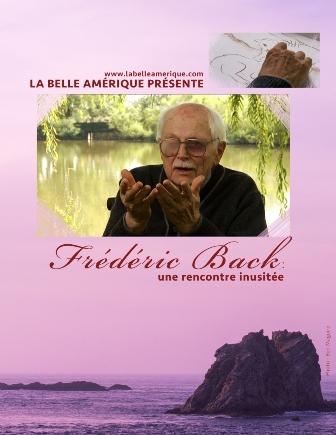 Hélène Jasmin introduces Frédéric Back, artist and environmentalist, creator of « Crac » and « The man who planted trees » winner of two Oscars, Chevalier de l’Ordre du Québec and … friend. And a few words on Lina Gagnon, animation artist and resident of Beaconsfield until her death in 2022, and her work with Frédéric Back.
Hélène Jasmin introduces Frédéric Back, artist and environmentalist, creator of « Crac » and « The man who planted trees » winner of two Oscars, Chevalier de l’Ordre du Québec and … friend. And a few words on Lina Gagnon, animation artist and resident of Beaconsfield until her death in 2022, and her work with Frédéric Back.![Photo: Man enslaved by the Fox Indians, also known as the Népissingué, around 1732 - Bibliothèque nationale de France, département Estampes et photographies, EST OF-4 [A] 2023 05 18CathieAnneDupuis AsservisAuQuébec](/images/conferences/2023/2023-05-18CathieAnneDupuis_AsservisAuQuébec.jpg) Around 1690, French Canadians saw an almost constant arrival of Indigenous and African enslaved in the Laurentian Valley until 1833. However, we still know very little about their living conditions. This lecture will present what we currently know about enslaved individuals' living conditions and the conditions that led to early mortality.
Around 1690, French Canadians saw an almost constant arrival of Indigenous and African enslaved in the Laurentian Valley until 1833. However, we still know very little about their living conditions. This lecture will present what we currently know about enslaved individuals' living conditions and the conditions that led to early mortality.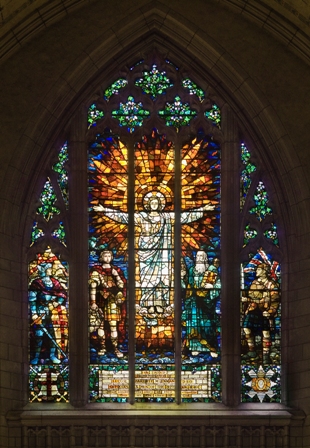
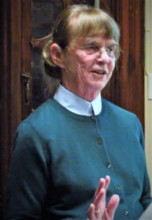 Learn more about the modest McLennan family who gifted the Window to the Church and so much more to Montreal and Canada.
Learn more about the modest McLennan family who gifted the Window to the Church and so much more to Montreal and Canada.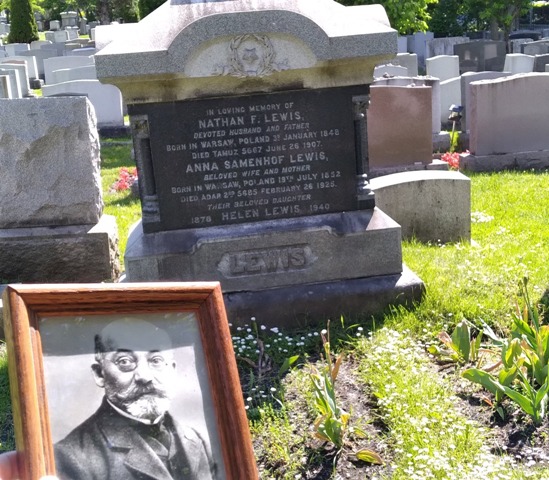 In 1910 L.L. Zamenhof, the creator of Esperanto, had his first and only trip outside Europe: to visit the International Congress of Esperanto in Washington, DC. But what very few people know also is that not only did he visit Washington, DC, but also Montreal and -- yes! -- Beaconsfield! Why Beaconsfield? Because some of his close relatives immigrated to Montreal in the 1880s and also had their summer residence in Beaurepaire - Beaconsfield. Yevgeniya will tell us all that is to know about the lost -- and found -- Zamenhofs of Canada.
In 1910 L.L. Zamenhof, the creator of Esperanto, had his first and only trip outside Europe: to visit the International Congress of Esperanto in Washington, DC. But what very few people know also is that not only did he visit Washington, DC, but also Montreal and -- yes! -- Beaconsfield! Why Beaconsfield? Because some of his close relatives immigrated to Montreal in the 1880s and also had their summer residence in Beaurepaire - Beaconsfield. Yevgeniya will tell us all that is to know about the lost -- and found -- Zamenhofs of Canada.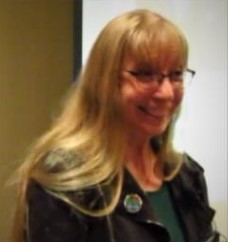 Yevgeniya Amis speaks Esperanto every day with her husband Joel. She is a former editor of a socio-cultural magazine in Esperanto (Kontakto). She premiered recently as a playwright and producer of the play "1910" -- a "firsthand" story about Zamenhof's visit to Montreal that was put on stage during the
Yevgeniya Amis speaks Esperanto every day with her husband Joel. She is a former editor of a socio-cultural magazine in Esperanto (Kontakto). She premiered recently as a playwright and producer of the play "1910" -- a "firsthand" story about Zamenhof's visit to Montreal that was put on stage during the 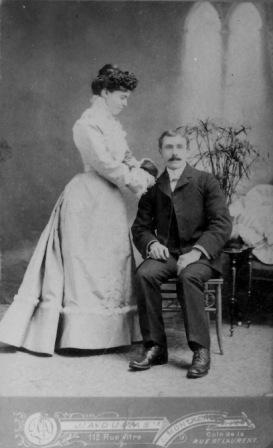 After explaining the reason he wrote this book and the title of the book, Mr Wilkins will make reference to just a few of the events that took place during the first year of the twentieth century: The death of Queen Victoria and how that news was received in Montreal; the massive Board of Trade fire of late January; the Redpath deaths in June of 1901, which were the result of one of the strangest shooting stories ever in this city’s history; the Royal Visit of September 1901; etc, etc.
After explaining the reason he wrote this book and the title of the book, Mr Wilkins will make reference to just a few of the events that took place during the first year of the twentieth century: The death of Queen Victoria and how that news was received in Montreal; the massive Board of Trade fire of late January; the Redpath deaths in June of 1901, which were the result of one of the strangest shooting stories ever in this city’s history; the Royal Visit of September 1901; etc, etc. 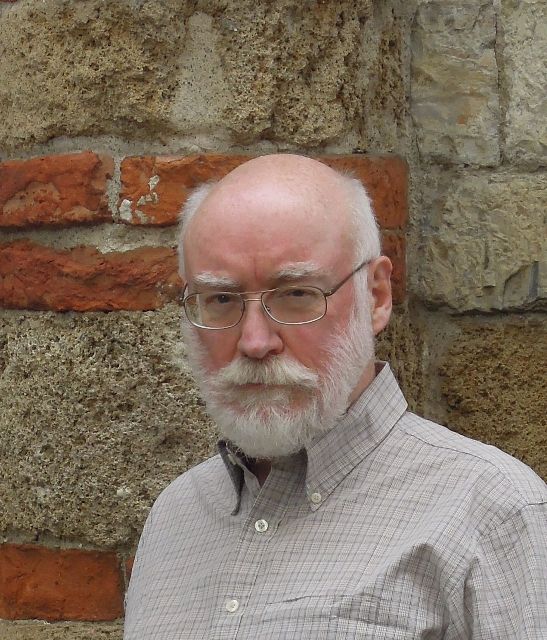 Born in Montreal in 1947, Robert N. Wilkins was educated at Concordia University, Carleton University, and McGill University. High school teacher in the Montreal area for some 35 years, he was also a contributor to the Quebec Family History Society quarterly ‘Connections’, The Westmount Examiner, The Suburban, The Montreal Gazette, and, occasionally, other national newspapers as well. He published two books, 'Montreal, 1909' (Shoreline Press, in 2017) and 'Montreal Recorder’s Court', 1906 (in 2020) before his more recent book 'Grandad’s Montreal, 1901' (in 2022).
Born in Montreal in 1947, Robert N. Wilkins was educated at Concordia University, Carleton University, and McGill University. High school teacher in the Montreal area for some 35 years, he was also a contributor to the Quebec Family History Society quarterly ‘Connections’, The Westmount Examiner, The Suburban, The Montreal Gazette, and, occasionally, other national newspapers as well. He published two books, 'Montreal, 1909' (Shoreline Press, in 2017) and 'Montreal Recorder’s Court', 1906 (in 2020) before his more recent book 'Grandad’s Montreal, 1901' (in 2022).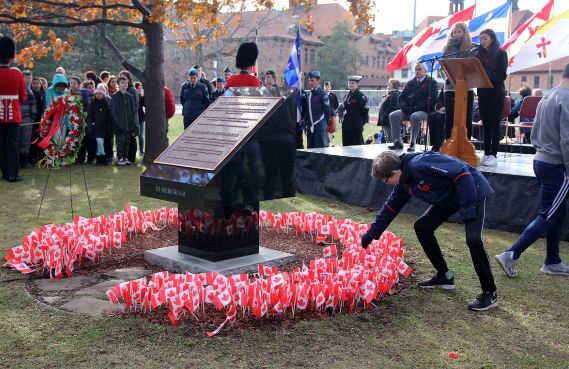
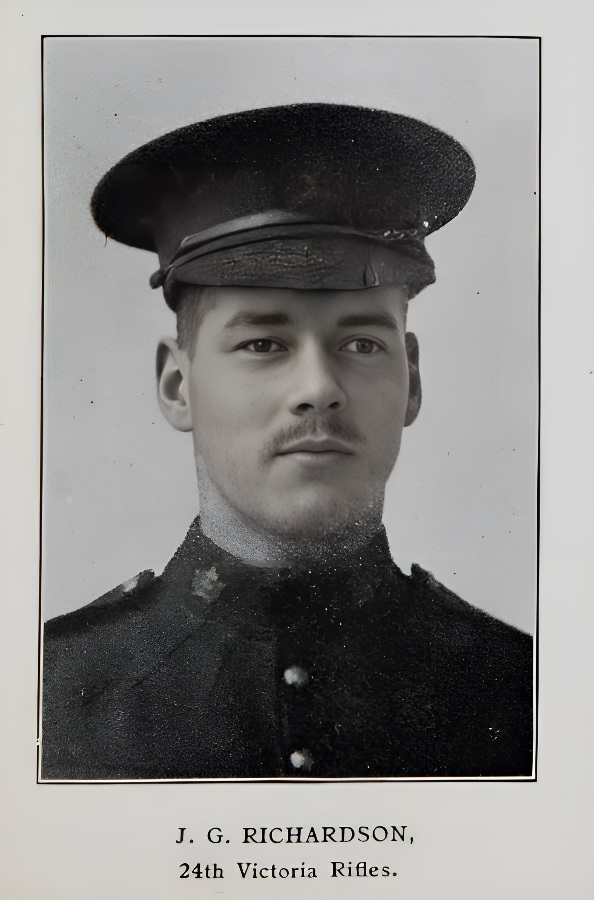
 Wes Cross is a co-founder of the
Wes Cross is a co-founder of the 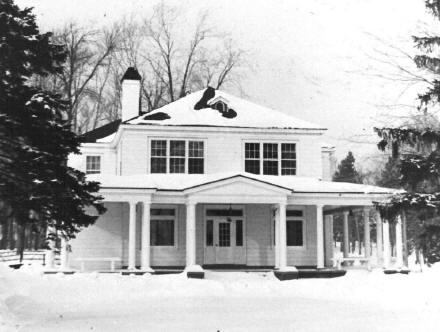 Centennial Hall, now the city’s cultural centre, was once home to a lawyer, a Montreal sports magnate, dozens of delinquent girls and Beaconsfield’s city hall. This lecture will tell the history of Centennial Hall, its owners and what was there before.
Centennial Hall, now the city’s cultural centre, was once home to a lawyer, a Montreal sports magnate, dozens of delinquent girls and Beaconsfield’s city hall. This lecture will tell the history of Centennial Hall, its owners and what was there before. 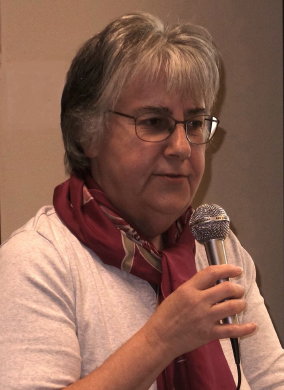 Pauline Faguy-Girard is interested in history and more specifically to Beaconsfield’s history since 2004 when she joined the historical society. Through the years, she has been Secretary, Treasurer and, since 2018, President of our historical society.
Pauline Faguy-Girard is interested in history and more specifically to Beaconsfield’s history since 2004 when she joined the historical society. Through the years, she has been Secretary, Treasurer and, since 2018, President of our historical society.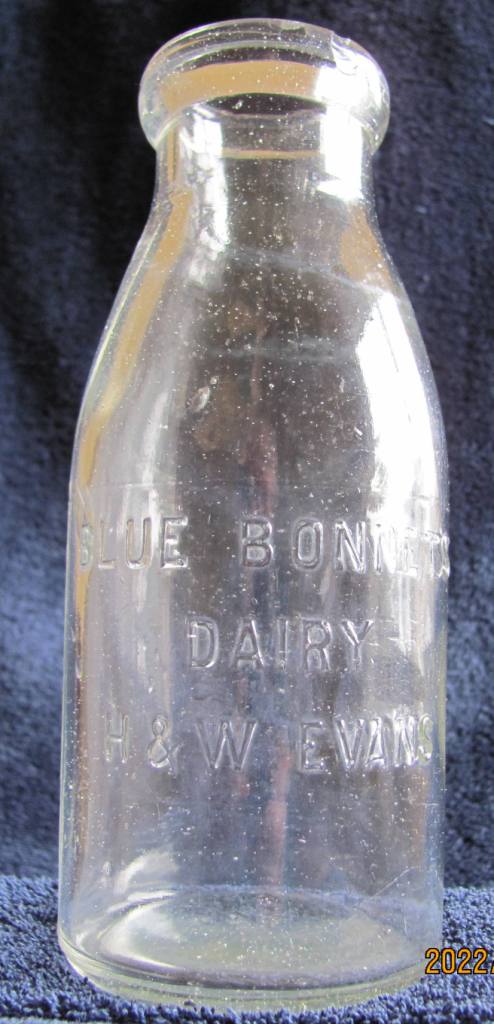
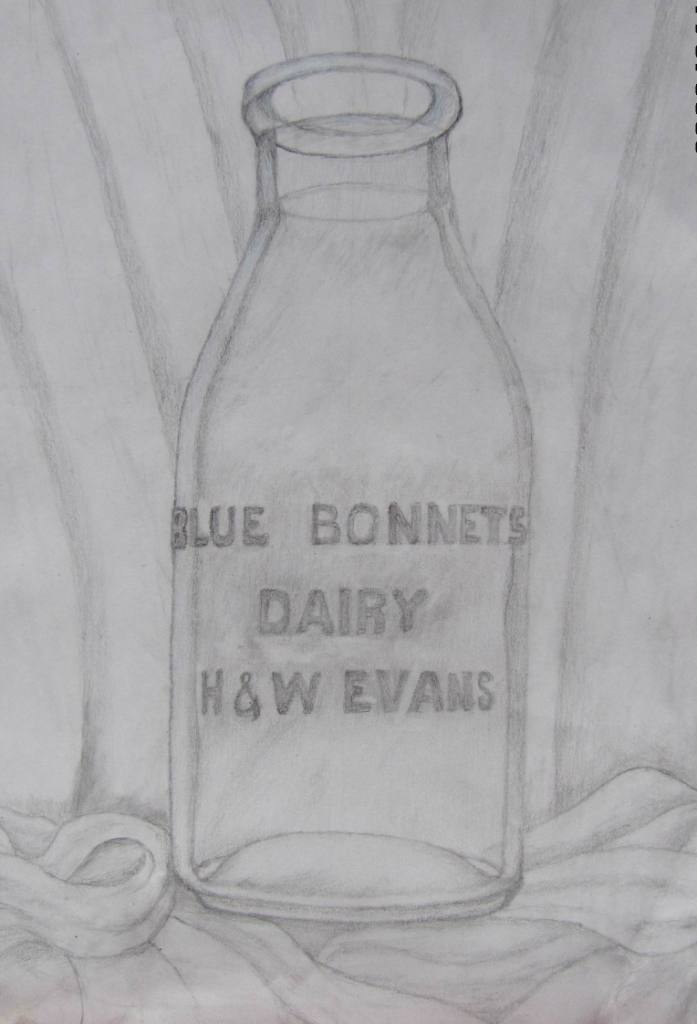
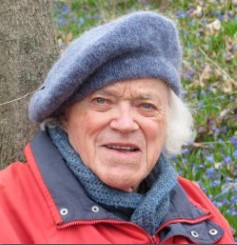
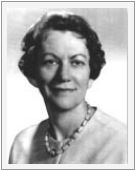 On the heels of National Nurses Day celebrated on May 12th, this talk will feature the accomplishments of Dr. F. Moyra Allen (1921-1996), renowned nursing professor and researcher, and Officer of the Order of Canada. Dr. Allen was a long time resident of Beaconsfield.
On the heels of National Nurses Day celebrated on May 12th, this talk will feature the accomplishments of Dr. F. Moyra Allen (1921-1996), renowned nursing professor and researcher, and Officer of the Order of Canada. Dr. Allen was a long time resident of Beaconsfield. 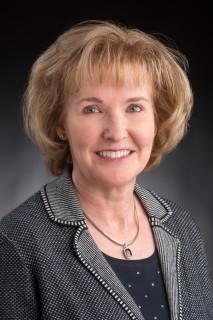 Margaret Purden was one of the first nurses appointed by Dr. Moyra Allen to advance an expanded role for nursing in health care. Although the centre had a limited run from 1977 to 1979, many important advances in nursing education and practice can be traced back to this influential work.
Margaret Purden was one of the first nurses appointed by Dr. Moyra Allen to advance an expanded role for nursing in health care. Although the centre had a limited run from 1977 to 1979, many important advances in nursing education and practice can be traced back to this influential work.